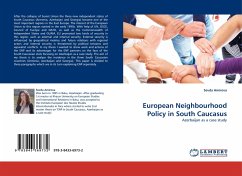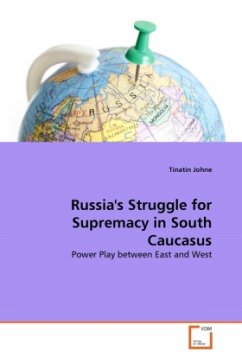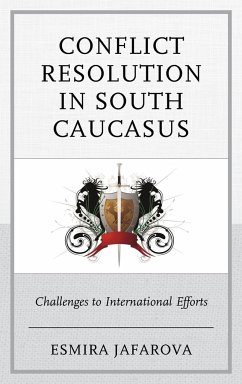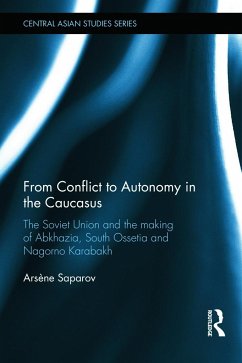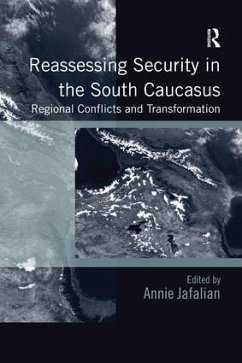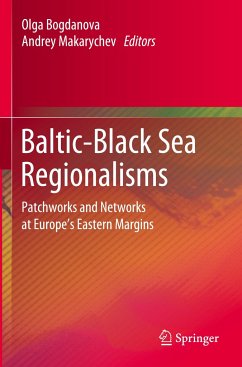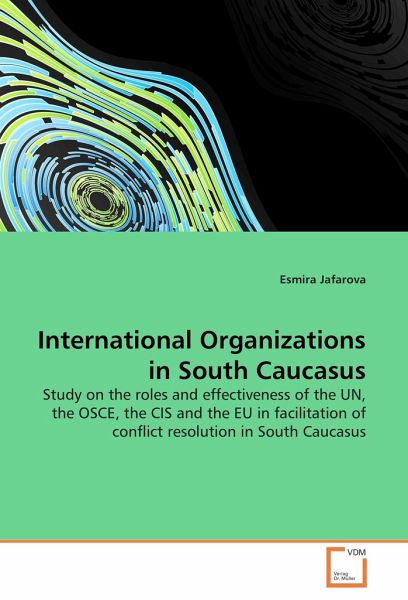
International Organizations in South Caucasus
Study on the roles and effectiveness of the UN, the OSCE, the CIS and the EU in facilitation of conflict resolution in South Caucasus
Versandkostenfrei!
Versandfertig in 6-10 Tagen
52,99 €
inkl. MwSt.

PAYBACK Punkte
26 °P sammeln!
This scholarly work focuses on the roles of four institutions the UN, the CIS, the OSCE and the EU in the process of conflict resolution in South Caucasus and analysis of their effectiveness in facilitating the achievement of final settlement. Although some scholarly works have been previously written on the subject, the originality to this work is added by virtue of the fact that it attempts to explore the effectiveness and evaluate the policies of these institutions by incorporating various assumptions of regime theory, theoretical approaches to international mediation and theoretical approa...
This scholarly work focuses on the roles of four institutions the UN, the CIS, the OSCE and the EU in the process of conflict resolution in South Caucasus and analysis of their effectiveness in facilitating the achievement of final settlement. Although some scholarly works have been previously written on the subject, the originality to this work is added by virtue of the fact that it attempts to explore the effectiveness and evaluate the policies of these institutions by incorporating various assumptions of regime theory, theoretical approaches to international mediation and theoretical approaches to the study of European integration. Moreover, provided that the in scholarly literature, regime theory and its effectiveness concept were mostly researched and applied to international environmental regimes, and study on the effectiveness of non-environmental regimes from the perspective of the regime theory seems lagging behind (however, this is not to say that no work has been done), this work is one of the attempts to fill this gap. Regime theory constitutes the main theoretical scope of this work.






